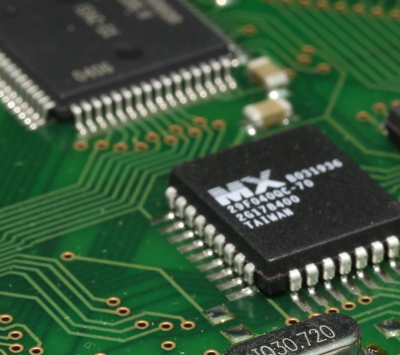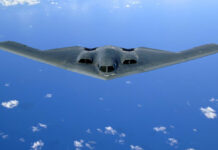Two things moved the world closed to war today as two well-known hot spots heated up.
First, an Iranian missile hit an Israeli-owned ship in the Arabian sea. This could exacerbate tensions between Iran and Israel and lead to a response from Israel, which is known for its punishing response to attacks. Whether Israel strikes back directly at Iran or one of the terrorist groups it sponsors remains to be seen. At the very least, I would expect Israeli air strikes on ammo dumps or missile launch sites.
The danger here is that the two countries could get embroiled in open warfare that might involve the entire region and impact oils supplies, suck in world powers like the U.S. or Russia, or even lead to the use of nuclear devices.
Second, Taiwan publicly discussed its program of designing and building land-based long-range missiles capable of striking mainland China. They said one system is currently in production (and one assumes being deployed) and three more are in development.
Missiles as a Deterrent
Developing these missiles should be child’s play for a highly technical and developed country such as Taiwan. Their would be far more accurate and deadly than the Scud missiles used by Iraq decades ago.
Think of it this way: If Japan worries every time North Korea test fires a ballistic missile, as they did earlier this week, shouldn’t China worry if Taiwan develops missiles?
It would be interesting to know if any of these missiles are designed to hit ships at sea. Anti-ship missiles would be of great use should China launch an invasion fleet.
Why do these missiles bring the world closer to war? Because China, which everyone believes is building gup its naval forces with the explicit intent of invading Taiwan, may move up its attack up so that the missiles will not be fully deployed.
Taiwan and Semiconductors
Taiwan is the global leader in semiconductor manufacturing. For example, Taiwan Semiconductor Manufacturing Company supplies more than half the chips made in the world. It is hard to imagine that their capability would continue to exist after an invasion. This would have a tremendous negative impact on the global economy as more than half of the world’s advanced electronic devices, including most modern cars, could no longer be produced if Taiwan’s manufacturing base was destroyed in a war.

Today, China would probably be hurt worse than the U.S., but they have set an aggressive goal to increase their internal production of advanced chips. Few experts believe they can accomplish it, but it shows where their thinking lies.
Three Kinds of War
From a prepper’s perspective, there are three types of war:
Wars that take place far away, do not involve the U.S., and have little or no impact on the U.S. or on immediate our lives. The smoldering wars in Africa meet these criteria.
Wars that take place far away and involve the U.S. to an extent that it might have an economic or other impact on our lives. This could range from something like the ongoing conflict in Syria where our involvement is minimal to a conventional war between India and China. The latter would definitely affect markets, cause panic, and would require careful monitoring and an upgrade in your level of preparedness.
And finally, there is the possibility of large-scale actions that directly involve U.S. troops and resources and could likely possibly include a response directed at U.S. targets or even on U.S. soil. This is more than a few mortars launched at an embassy or a few cruise missiles fired in response. This is more than a secret operation by Special Forces or a late-night B-52 bombing run. This mean an active engagement of U.S. Naval and Air Force assets that goes back and forth, followed by boots on the ground, paratroopers in the air, or Marines on landing craft. Unfortunately, both the Iran/Israel conflict and the China/Taiwan scenarios fall into the third category.







